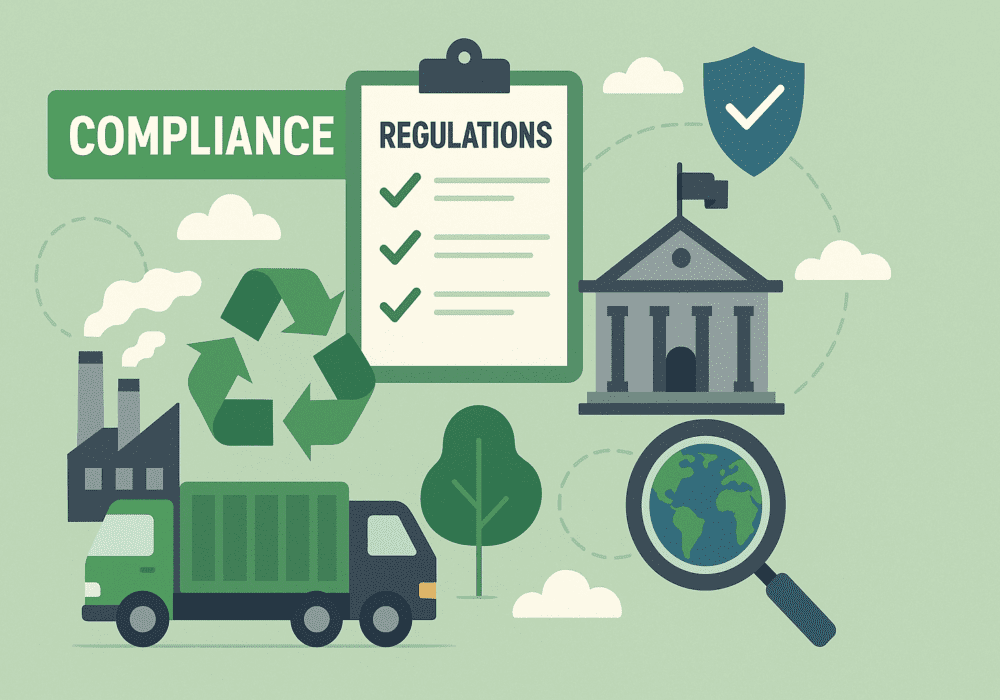
Introduction
With sustainability targets tightening and new legislation emerging, councils are under growing pressure to ensure their waste services remain compliant. From Extended Producer Responsibility (EPR) to carbon reporting requirements, the compliance landscape is becoming more complex—and failure to comply can mean financial penalties and reputational risk.
In this blog, we look at how councils can stay ahead of environmental regulations by using digital tools to automate reporting, track performance, and respond to changes with confidence.
The Challenge of Staying Compliant
Compliance requirements aren’t static. From national waste targets to local emissions reductions, councils face:
- Frequent policy updates
- New data submission formats
- Increasing scrutiny and audits
Managing these with spreadsheets and manual systems is time-consuming and error-prone. Without the right tools, teams can struggle to maintain visibility or prepare reports quickly.
How Digital Waste Management Systems Help
Modern software systems like Whitespace Work Software are designed to make compliance easier by:
- Automating Reporting: Schedule and generate reports in approved formats, saving hours of manual work.
- Centralising Data: Bring together all service and performance data in one place to support faster, more accurate reporting.
- Tracking KPIs: Monitor compliance metrics such as missed bins, contamination levels, landfill diversion rates, and more.
- Responding to Change: Quickly adapt services to meet new policy demands or reporting frameworks.
Supporting New Regulations Like EPR
Extended Producer Responsibility (EPR) will shift more waste cost responsibility to producers—but councils still need to track and report how waste is collected and processed. With digital tools, councils can:
- Collect more granular waste data
- Monitor which materials are being recovered and where
- Demonstrate collection performance to stakeholders
This level of reporting isn’t just about compliance—it supports transparency and funding opportunities.
Real-Time Visibility Reduces Risk
Delays in identifying service issues can lead to regulatory breaches. With real-time dashboards and live updates, councils can:
- Identify and fix problems before they escalate
- Keep teams accountable with clear, current data
- Provide evidence to regulators when needed
Digital systems act as both early warning and assurance tools.
Building Trust with Stakeholders
Compliance isn’t only about legislation—it’s also about public trust. Residents and regulators want to see that councils are managing waste responsibly and making progress toward environmental goals.
By improving the quality, timeliness and accessibility of reporting, councils can:
- Reassure residents with visible progress
- Build stronger relationships with environmental agencies
- Support transparent, data-backed decision-making
Conclusion
Navigating compliance doesn’t have to be a burden. With the right digital infrastructure, councils can manage environmental regulations with confidence, free up staff time, and reduce the risk of penalties.
Whitespace Work Software offers councils the tools to monitor, report and adapt—all while improving service delivery.
